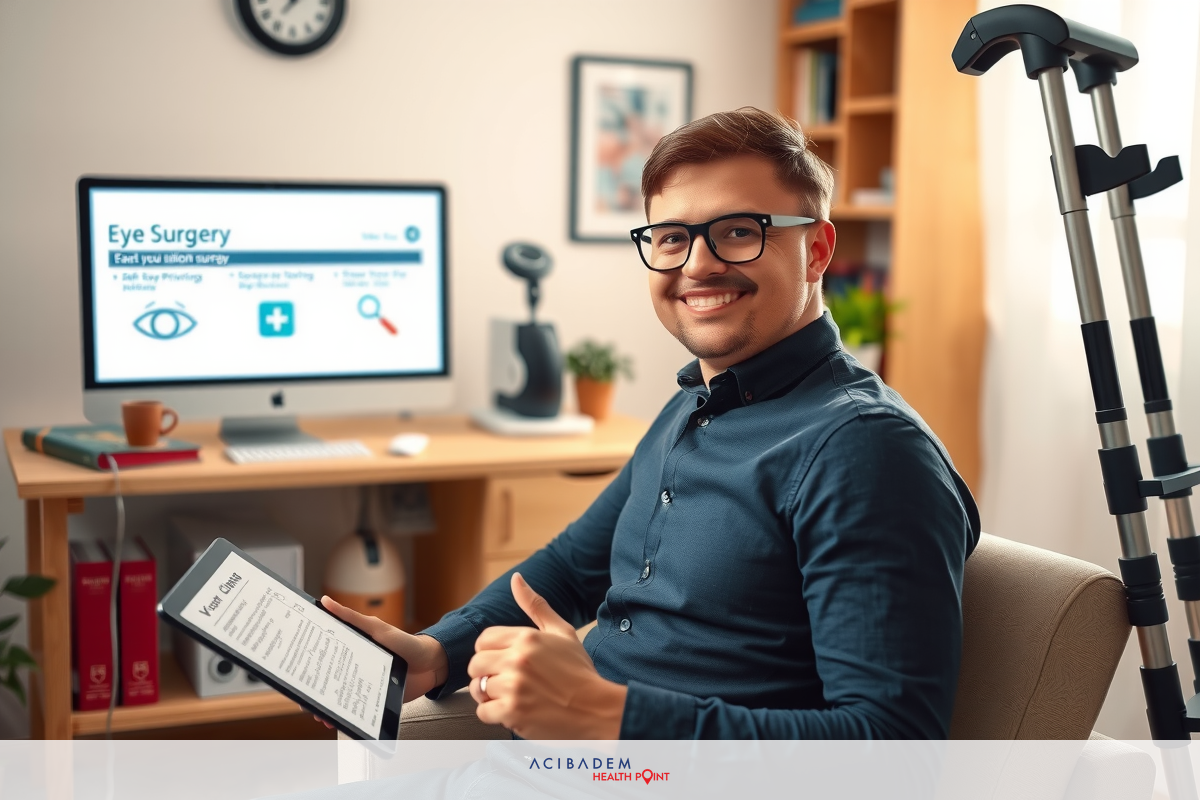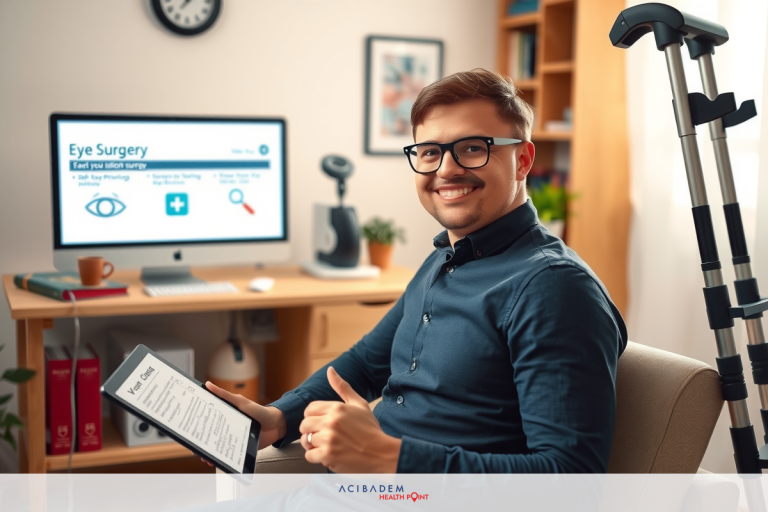Can You Drive After Laser Eye Surgery
Can You Drive After Laser Eye Surgery After a person undergoes laser eye surgery, one of the first questions they often have is when can their normal activities resume? More importantly, how soon can they safely get behind the wheel?
On one hand, you’ve taken a step towards better vision. On the other hand, navigating post-surgical instructions requires careful attention. Among these guidelines, driving restrictions sit at top priority since visual acuity and ability to react quickly are essential aspects of road safety.
While it’s an exciting time filled with anticipation of life without glasses or contacts, patients must temper expectations with patience. It’s crucial to note that recovery doesn’t mean immediate return to routine especially where driving is concerned. Rest assured though; this period is typically short-lived and followed by lasting improvements in eyesight quality.
Can You Drive After Laser Eye Surgery Driving Restrictions After Laser Eye Surgery
Emerging from the laser eye surgery suite, your vision altered, often noticeably improved; you might wonder when can you get back on the road. While every individual’s healing process is unique, some universal postsurgery restrictions apply to all. Regardless of how clear your sight may be immediately following the procedure, it’s important not to rush into driving.
Your newly operated eyes will typically experience light sensitivity and blurriness in the first few hours postsurgery. You also may notice halos or starbursts around lights at nightfall – conditions that pose potential hazards while driving. It’s crucial to bear in mind these are temporary symptoms which usually fade over time as part of a normal recovery process.
Most surgeons advise waiting 48 hours after laser eye surgery before attempting to drive again – an interval that allows initial healing and stabilization of vision changes. During this period, patients are encouraged not only avoid operating vehicles but also other tasks demanding precision and depth perception such as using heavy machinery or climbing ladders.
Safety needs take precedence during this imperative phase of recovery after laser eye surgery! Respect for the recuperation timeline isn’t just about preserving personal well-being. It extends beyond that – ensuring safe roads for our communities too because premature resumption could risk both self-health and public safety due spatial disorientation experienced during early stages of recovery.
It’s wise to schedule follow-up appointments with your surgeon before stepping foot into traffic lanes again, confirming visual acuity has returned within legal limits for driving so there’s no doubt regarding capability behind steering wheels once more.
Recovery Period After Laser Eye Surgery
When the bandages come off and post-surgical reality sets in, patients often find themselves eager for reassurance of their prompt return to normalcy. The recovery period following laser eye surgery is an exercise in patience, wherein cultivating a sense of caution and persistence holds key importance. It’s a journey laden with changes, ranging from swiftly noticeable vision improvements to transient visual disturbances such as glare or dry eyes.
The fascinating part is that the healing process begins almost immediately after your procedure concludes but full recovery may take up to six months! Yes, it’s true, while majority of patients can resume daily activities within mere days; stabilizing newfound vision could extend over several weeks or longer – so don’t fret if you experience

fluctuations during this span. This phase should be faced with understanding that everyone’s body heals at its own unique pace.
During this crucial time-frame of metamorphosis where a new world unfolds before revitalized eyes; refraining from strenuous physical exertion helps aid uncomplicated recuperation. Let go off any heavy lifting work or high-intensity workouts for about one week post-surgery; extreme sports which risk ocular trauma will need longer break too– typically four weeks or more until approved by your surgeon again!
Ascribing equal weightage towards avoiding potential irritants like dust particles, smoke etc., protecting operated eyes against sunlight exposure by wearing sunglasses outdoors and maintaining good hydration levels – primarily through frequent application prescribed lubricating drops– also fall under purview essential care measures during recuperative course.
Certainly then, commendable progress achieved on road to full recovery doesn’t contradict necessity adhering strictly advised activity restrictions ensuring long-term success surgical intervention – paramount among them being cautious approach when contemplates resuming driving responsibilities after their laser eye surgery!
Tips for Safe Driving After Laser Eye Surgery
Having laser eye surgery can be transformational, gifting you with a newfound visual freedom. As the world takes on sharper clarity post-procedure, beginning to drive again often marks an exciting milestone on this journey of liberation. However, being mindful of certain aspects is important as you hit the road after your treatment.
Let’s consider some helpful precautions and practices which make your transition back to driving safer and smoother:
- Wait it Out: Don’t rush into resuming driving soon after your procedure. Give yourself at least 48 hours – or whatever duration advised by surgeon – before getting behind wheel ensuring that initial recovery under way clinching peace mind while traversing routes.
- Night Time Notions: Night vision may initially be hampered due to temporary glare or halos around lights post-surgery; so limiting driving during darker hours until these symptoms subside helps avoid risk unnecessarily.
- Fluid Invigoration: Dry eyes are a common aftermath effect of laser eye surgery thus keep artificial tear drops handy in car combat sudden bouts dryness ensuring comfort during drives.
- Doctor’s Note: Prior embarking journeys beyond walking distance, try securing clearance from doctor confirming readiness hitting roads extends confidence own ability manage traffic situations smoothly.
- Basking Undercover: Sunlight might feel harsher tenderly healing eyes therefore arming self good pair sunglasses effectively shields against strong UV rays offering better visibility while negotiating outdoors terrains vehicle.
- Companion Comforts: Initially having friend relative accompany during trips provides moral support plus valuable backup case sudden discomfort difficulties faced providing boost ease driver’s seat experience post-surgery days.
Indeed, following these practical safety tips will not only aid in making sure that your return to driving is secure but also contribute towards nurturing overall wellbeing after laser eye surgery!
Frequently Asked Questions
When can I actually start driving after my laser eye surgery?
Generally, surgeons recommend waiting a minimum of 48 hours post-surgery before you consider taking up the wheel again. However, this varies with individual recovery progress and tolerance levels to post- operative changes such as glare or starbursts around lights.
Will dry eyes affect my ability to drive safely following the surgery?
Dryness of eyes is a common transient issue experienced by many patients after laser eye surgery. While it may cause temporary discomfort, it shouldn't significantly impact your ability to drive safely once sufficient time has passed since your procedure. You'd be advised to always keep artificial tear drops handy in your car though!
Can I go on long road trips immediately after recovery?
It would be wise to limit longer journeys initially until you are completely comfortable with your vision during various travel conditions: day, night, rainy weather etc., and have received clearance from doctor confirming readiness for prolonged driving activities.
Does wearing sunglasses help while driving post-surgery?
Yes! Protecting healing eyes against sunlight exposure by wearing good quality UV-protective sunglasses outdoors offers better visibility alongside easing any potential light sensitivity discomfort making drives more pleasant. Please note that all answers provided here should be used for informational purposes only and do not constitute medical advice. Always consult healthcare provider directly regarding specific personal queries or concerns related surgical procedures such as laser eye operation aftermaths including restrictions on activities like driving.








